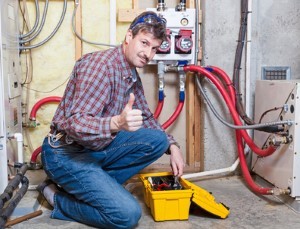How To Get The Most Efficiency From Your Heat Pump

Being a service technician for many years and someone who cares about your heating and cooling comfort, costs and efficiency I have noticed that there are quite a few people who own a heat pump but who do not operate them to achieve the most efficient operation. I want to share my own thoughts on the use of the heating side of this well engineered piece of equipment. If used properly the savings can be as much as 50% over other sources of heat. The main reason for this is that a heat pump does not actually have to create heat in order to warm your home as is the case with electric or fossil fuels. What is does is to absorb heat that is in the outside air into the refrigerant in the outside coil and transfers that heat into your home. This happens because the temperature of the outside coil must remain at least 10°F below the temperature of the outside air.
Since the outside coil of the heat pump will get colder and colder as it moves more and more of the cold air that is inside the house to the outside, the coils may begin to frost up due to the moisture in the air. The best way to remove the frost is to then send the heat pump into a reverse cycle (this happens automatically). This is the way it operates as an air conditioner. Except in this case the outside fan does not operate in order to defrost the coil faster. During this defrost period there needs to be some way to temper the cold air that is being blown into the house, since your heat pump in defrost mode is basically operating as an air conditioner. This is done by energizing the electric heat strips that are in the inside air handling unit either in your basement or attic.
If you have a heat pump it will be supplied with a thermostat that is designed specifically for heat pumps. The heat pump will not produce a blast of high temperature heat the way an oil or a gas furnace will which will be around 110°F to 130°F. The heat from your heat pump will be more in the range of 75°F to 95°F depending on the outside temperature. The lower the outside temperature the less heat that will be available to be absorbed into the refrigerant and transferred to the inside of your home. Most people find that the heat pump provides a much more evenly distributed heat that other forms.
All heat pumps will be equipped with some sort of backup heat, this will most likely be electric heat strips. This is the most expensive heat there is. So you want to avoid the electric heat strips from coming on. When the heat pump is unable to keep up with the demand for heat, the heat pump will energize these electric heat strips in what is called auxiliary heat. What this means is the heat pump will run and add some heat to your home but it will also engage the electric backup heat at the same time. When the heat pump can no longer supply the heat needed to warm the house (when the is 3°F difference between the setting temperature and the room temperature), the auxiliary heat will energize to help bring the room up to temperature quickly. Then when the difference is 2°F or less the auxiliary heat will disengage and allow the heat pump to take over and get the job done.
The way it will operate the most efficiently is if you set one temperature and leave it alone. That is the best way to ensure that your electric heat strips do not come on (which will cost you dearly).
On cold days it is not uncommon for your heat pump to run up to 20 hours a day, however this is more efficient and cost effective than running your electric backup heat for just a few hours.
The electric heat strips in your indoor air handler will also be used in case of a catastrophic failure of your outside unit. If you have problems with the compressor or you have a refrigerant leak that does not allow your outside unit to run, your backup heat strips will take over. Which although costly, will keep you warm until any necessary repairs can be made. If you notice that your thermostat is indicating that your heat pump system is running in auxiliary or emergency heat for long periods, you should have your system looked at immediately by a competent technician who is knowledgeable about heat pumps.
I feel that it is important that you understand how your equipment works in order to achieve the most efficiency from it.
I hope that this information has been of some use to you.
Hope This Helps,
Joe Marchione
info@thebesthvac.com

